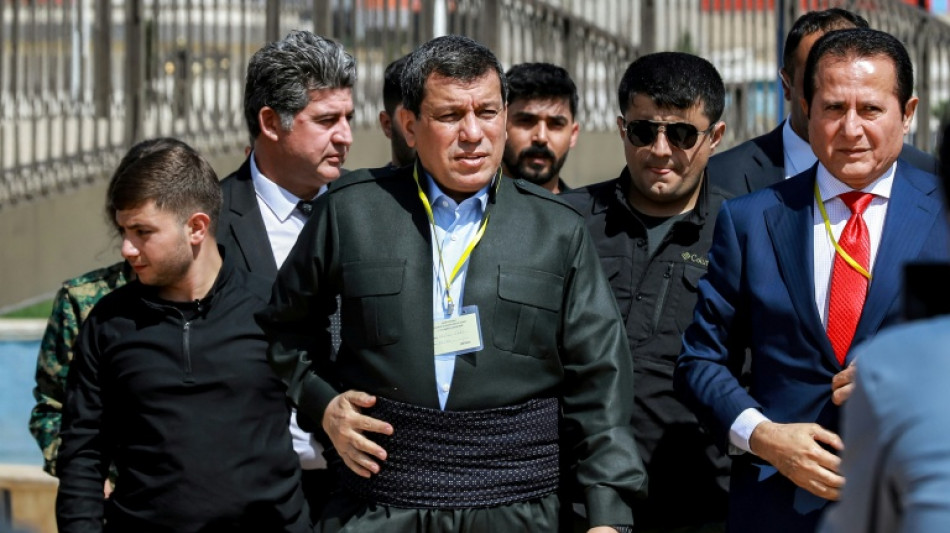
JRI
0.1400


Syria's Kurdish parties on Saturday adopted a joint political vision calling for a "decentralised democratic" state in Syria with guarantees for Kurdish rights.
Their statement came at the end of a conference held in Qamishli, northeastern Syria, where a top Kurdish official disputed suggestions that the meeting sought division following the fall of longtime ruler Bashar al-Assad.
Syria's new Islamist-led rulers seek to establish government control over the entire country since they ousted Assad in December after more than 13 years of civil war.
Marginalised and repressed during decades of Assad family rule, Kurdish-led forces took advantage of the civil war to establish de facto autonomy in the north and northeast.
Syria's new government vision puts into question the status of that authority.
Mohamad Ismail, a high-ranking official in the Kurdish National Council, announced at the close of the conference the "joint Kurdish political vision, expressing a collective will and a realistic project for a fair solution to the Kurdish issue in Syria, as a decentralised democratic state".
The statement, closing the "Unity of the Kurdish Position and Ranks" conference, said the vision "ensures constitutional rights for the Kurdish people, adheres to international human rights treaties, preserves women's freedom and rights".
The statement also called for the vision to be "a basis for national dialogue" between Kurdish forces and the new administration in Damascus.
More than 400 people, including representatives from major Kurdish parties in Syria, Turkey and Iraq's Kurdistan region took part in the conference, according to the Kurdish Anha news agency.
Among the delegates were the Kurdish-led Autonomous Administration of North and East Syria (AANES) as well as groups opposed to it.
- 'Unity of Syria' -
Last month, Syria's presidency announced an agreement to integrate the institutions of the autonomous Kurdish administration into the national government.
But that agreement has not prevented the Kurdish authorities from criticising Syria's new authorities.
The Kurdish-led administration rejected a new national government formed last month, saying it does not reflect the country's diversity.
They levelled a similar criticism against last month's constitutional declaration that concentrated executive power in the hands of interim President Ahmad al-Sharaa during a transition period.
Mazloum Abdi, head of the Syrian Democratic Forces, the Kurdish administration's de facto army, said at the conference that "my message to all Syrian constituents and the Damascus government is that the conference does not aim, as some say, at division".
It was being held, he added, "for the unity of Syria".
The US-backed SDF played a key role in the fight against the Islamic State group, which was defeated in its last Syrian territorial stronghold in 2019.
"We support all Syrian components receiving their rights in the constitution to be able to build a decentralised democratic Syria that embraces everyone," Abdi said.
In a post shared on social media platform X, AANES official Bedran Ciya Kurd said the conference marked a "historic moment" that will allow Kurds to "play a leading role in the radical democratic transformations in Syria".
"This blessed step should be a source of hope, optimism, and relief for all Syrians for their unity and strength, not a reason for reservation or fear," he added.
Most of the country's oil and gas fields are in areas administered by the Kurdish authorities. These may prove a crucial resource for Syria's new authorities as they seek to rebuild the impoverished, war-devastated country.
A.Kwok--ThChM